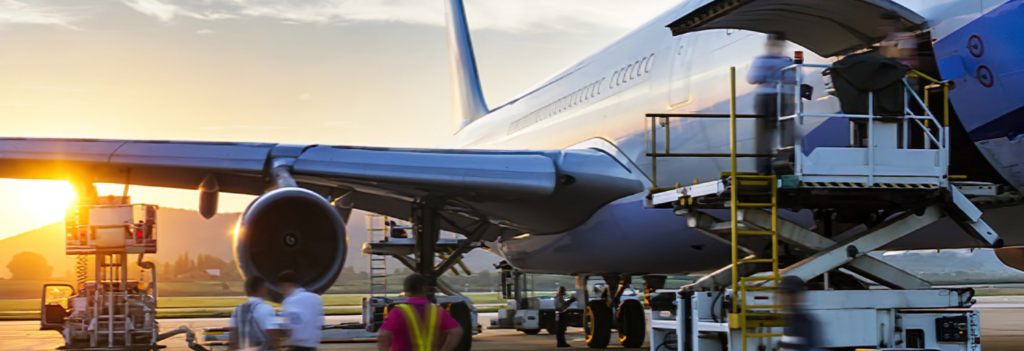Removing climate-harming emissions from aviation
If you are new to the greenhouse gas and future of aviation debate, you may find this glossary useful.
Aviation emissions, both domestic (40%) and international (60%), are the Achilles’ heel of the tourism industry. Tour operators, tourism authorities, and destinations need to demand that air transport providers remove carbon and other climate-harming emissions, not just to claim green credentials but to assure the industry’s future.
Aviation is responsible for about 2.4% of the world’s CO2 emissions and 3.5% of human-induced climate change when other greenhouse gases and contrails are accounted for. In March 2020, the respected German consultancy Roland Berger forecast that if other industries decarbonise in line with current projections, aviation could account for up to 24% of global emissions by 2050 unless there is a significant technological shift.
Carbon dioxide emitted now will contribute to climate change – sea-level rise, flooding, drought, and storms – for many decades. Delaying real emission reductions is irresponsible. Electors and policy-makers will most likely press for rapid change as the aviation sector’s failure to reduce its emissions while most other sectors lower their emissions now becomes evident to all.
Shortage of time and limitations of data at the third meeting of the UNFCCC’s Conference of the Parties (COP3) in 1997 resulted in international aviation being omitted from individual countries’ carbon budgets and being dealt with through the International Civil Aviation Organization (ICAO). In June 2020, Climate Action Tracker, an independent scientific analysis that follows government climate action and measures it against the Paris Agreement, found that current measures for international aviation are “Critically Insufficient”, compatible only with a 4°C+ world.
Airlines, highly influential in ICAO, have sought to continue with Business as Usual and initially passed responsibility to their consumers to offset their emissions voluntarily. Carbon offsets are popular with some in the aviation sector because responsibility passes to the end consumer and removes any pressure for the aircraft manufacturer or the airline to reduce their emissions. And they are very cheap – too cheap. If you are tempted by offsets look at the scientific arguments against them.
United Airlines CEO Scott Kirby, wrote in December 2020 “While they may offer customers some peace of mind, traditional carbon offsets do almost nothing to tackle the emissions from flying”. He added, “… more importantly, they simply don’t meet the scale of the global challenge.” In March this year, he called carbon offsets “a fig leaf for a CEO to write a check”.
ICAO’s primary emissions mitigation (reduction) tool, which has taken almost two decades to develop and is not expected to be effective for several more years, is CORSIA (Carbon Offsetting and Reduction Scheme for International Aviation). It has a very limited objective: “carbon-neutral growth” not a reduction. CORSIA seriously lacks ambition, only offsetting above 2019 levels and covering only an estimated 25% of the emissions over its 2021 to 2035 lifetime.
This is a recipe for Business as Usual. Since COP3 in 1997, CO2 emissions from aviation have almost doubled and currently match the 129 lowest emitting countries’ total emissions. It is presently unclear when air traffic will return to 2019 levels and whether future air traffic growth rates will be lower than in the past. Still, ICAO’s own forecasts suggest that without more effective action damaging emissions from air transport will at least double 2019 levels by 2050.
- ICAO was given responsibility by UNFCCC more than 23 years ago. The Organization still has no long-term global goal for a reduction in international aviation emissions. It has little or no progress over the past ten years “exploring the feasibility” of one. The time has come for responsibility for global climate policy on international aviation to be returned from ICAO to the UNFCCC directly. COP26 is the opportunity to set this in motion.
i. the UNFCCC should include international aviation emissions in the Paris Agreement’s Nationally Determined Contributions;
ii. the UNFCCC should set a target of zero carbon 2050 for international aviation, with intermediate targets at five-year intervals;
iii. since other greenhouse gases and condensation trails have now been reliably found to increase the contribution of aviation to global warming substantially, the UNFCCC should ensure that all are included in reduction targets;
iv. With its technical expertise, ICAO should continue to have responsibility for safety, and environmental standards for aircraft and “Monitoring, Reporting and Verification” of fuel consumption and emissions. - Sustainable Aviation Fuels (SAF), with “drop-in” capability for existing aircraft types, are currently being widely promoted as a solution for emissions mitigation. But the vast majority are biofuels, most of which do not deliver when assessed on a full life-cycle basis and emissions reduction over kerosene (an exception is advanced biofuels from waste feedstock, which face increasing limitations of supply as efforts continue to reduce waste). more
In January 2021 the Fuelling Flight Project, which includes NGOs and significant airlines (Air France, easyJet, Finnair, IAG and KLM), pointed to “the risk of massive capital investments in things that increase emissions compared to fossil fuels and/or that become stranded assets”. They called for “future proof sustainability requirements”, standards higher than those in the European Commission’s Renewable Energy Directive. They want the EC to include “clear exclusions of unsustainable feedstocks and pathways such as biofuels from dedicated cropland and PFAD”. The group has called for higher sustainability standards before SAF is prioritised and ramped up. As they assert, “Competition for limited resources, particularly in relation to international transport, will not solve the global climate challenge.”
- Synthetic “e-fuels” are often considered under the SAF umbrella, as they are also “drop-in”. However, they are otherwise entirely different from biofuels in that they emit no greenhouse gas emissions. Current production is negligible, they require a large amount of “green” power to produce the liquid fuel, and their cost is currently some three times as high as that of conventional jet fuel. However, with government blending mandates (regulations) they could be significant by 2030, and if kerosene is taxed, the price differential would reduce and become less important. more
As Bill Gates writes in his 2021 book How to Avoid A Climate Disaster, we have focused too much on lower-premium solutions, such as electric vehicles, and not enough on the bigger problems in industries, such as manufacturing, construction and aviation, that generate 70% of carbon emissions. “It’s truly embarrassing how little [investment] is going on in terms of clean steel or clean cement, or even clean aviation fuel.”
- Battery-powered aircraft are coming online for urban and other very short-haul operations but will not play a role in commercial air transport
- Hydrogen fuel cell-powered electric aircraft are being developed and will provide the best opportunities for all aircraft sizes and ranges. The main drawback will be that extreme ranges of over 6,000 nautical miles might not be feasible and that fuel cell aircraft generally will fly 20% slower than current jets. Substantial progress has been made by ZeroAvia, who now fly two 6-seater converted aircraft and plan to have a 19-seats, 500 nautical mile range aircraft in the air by 2023 and a 50-100-seat aircraft by 2026. A second startup, Apus, is entering this market. more
- On board hydrogen and/or fuel cells powered aircraft are being developed, notably by Airbus, with proof of concept by 2035 for routes up to 2 000 nautical miles. Given the lengthy time frame before revolutionary new aircraft types can be developed and replace the whole fleet, e-fuels will have to become the transition technology if the aviation sector is to have any chance of achieving zero carbon by 2050.
- Taxation on aviation fuels should no longer be exempt. Aviation should be taxed the same as fossil fuels for other forms of transport. Additional taxes may be raised to create funds to invest in zero-carbon emission aviation technologies. These are e-fuels, electric engines, hydrogen fuel systems and fuel cells. Airlines and manufacturers seek bailouts and government subsidies, but the vast majority of taxpayers fly rarely or never. The industry looks for taxpayer-funded subsidies while generally not paying taxes on the fuel it consumes or the pollution it causes.
- Developing country impacts: In 1992, the Earth Summit formally recognised that both the volume of greenhouse gas emissions generated by countries and their ability to deal with them varied widely. The principle of “common but differentiated responsibilities and respective capabilities” has been central to all subsequent climate negotiations and incorporated in the texts of the UNFCCC and the Paris Agreement.
Many Least Developed Countries, Landlocked Developing Countries and Small Island Developing States are substantially dependent on revenues from international tourism and air transport to and from their source markets. They require special treatment. They need a better mechanism for determining and realising their national interest in weighing up the benefits and costs of aviation-dependent tourism, exploring the opportunities of being more selective in the market when air ticket prices start to rise due to the introduction of decarbonised fuels. Developing local production of decarbonised fuels may be an option for those counties able to generate sufficient green energy creating employment, revenue and improving the balance of payments by reducing imports and potentially increasing exports. more
Chris Lyle International Aviation Policy Consultant, Montreal, Quebec, Canada
Former ranking career staffer at the International Civil Aviation Organization (ICAO), whose responsibilities encompassed the economic regulation activities of the Organization as well as leadership of its strategic planning activities. Now semi-retired with focus on aviation and climate change policy, including pro-bono work for various NGOs. Have represented ICAO and the World Tourism Organization (UNWTO) at many international meetings, including the Assemblies of both Organizations, the IATA Annual General Meeting, as well as Airports Council International and the Council for Trade in Services of the World Trade Organization. A frequently invited speaker in international fora and author of a number of articles on the economic and environmental regulation of air transport (the latter notably for GreenAir Online). Extensive experience in the field and a “hands on” capacity.
Prof. Dr. Ing. Paul Peeters (1957) is Professor, Sustainable Transport and Tourism at Breda University of applied sciences (BUas) since December 2002. He is responsible for the Centre for Sustainable Tourism and Transport of BUas and specialises in the environmental impacts of tourism and tourism transport in general and climate change mitigation in particular.
Paul has been educated as an aircraft engineer at the University for Professional Education Haarlem, the Netherlands. He worked four years as an aircraft preliminary design engineer on the development of the Fokker 50 and the Fokker 100 aircraft at the late Fokker Aircraft Factory in Amsterdam. Then he did two years research at the Dutch Energy Research Agency (ECN) on wind turbines. After this a long period followed in which he did research on transport and environment, at the Friends of the Earth (Amsterdam), Werkgroep 2000, a Dutch Consultancy Group and between 1995 and 2008 from his own Consultancy (Peeters Advies). He has been working on diverse projects like airship reintroduction, slow transport modes, cost and benefits of speed reduction, technological development of aircraft fuel efficiency, and transport accessibility for disabled people; common in almost all projects are the environment and the future.
Position paper zero greenhouse gas emissions aviation
Chris Lyle of (Air Transport Economics, Montreal), Harold Goodwin (Responsible Tourism Network, London) and Paul Peeters joined forces to write a short Position paper about zero greenhouse gas emissions aviation (link). Aviation is one of the ‘hard to abate’ sources for CO2 and greenhouse gases causing climate change. Only few options exist to reduce the emissions from air travel to zero. The paper describes such a scenario and provides recommendations for policymakers and then industry.
Download the position paper here

